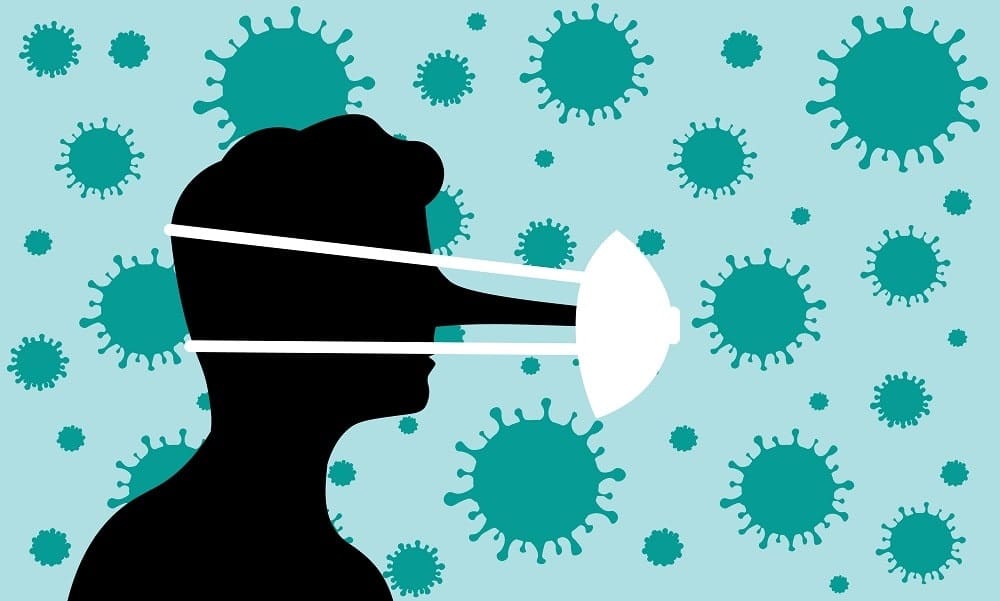Recent media reports have revealed numerous scandals tied to COVID-19 throughout Latin America. Miller & Chevalier’s Alejandra Montenegro Almonte and Greg Bates discuss several of these scandals and offer guidance to help all organizations mitigate the risk of corruption.
The coronavirus pandemic and the longstanding challenges of corruption and bribery in Latin America together have created a perfect storm of risk for companies operating in the region. Notwithstanding blockbuster enforcement actions by the United States and Latin-American governments, corruption continues to be a significant challenge. Fifty-four percent of respondents to Miller & Chevalier’s 2020 Latin American Corruption Survey said corruption was a significant obstacle to doing business in Latin America; this is a 10 percent increase from a previous edition of the survey.
While the survey Miller & Chevalier and 14 of our partner firms conducted was carried out in early 2020 – prior to the pandemic hitting the region with full force – the challenges faced in the region have only become more apparent today as Latin America grapples with the pandemic, businesses look to continue operating in the face of unprecedented challenges and millions of individuals cope with health and financial uncertainty.
In this article, we bring these issues to light by summarizing some of the known and reported corruption scandals that have arisen from the pandemic. We also identify increased corruption risks companies face in the region today in the context of the pandemic. Finally, we discuss effective strategies compliance professionals can employ to address these unique and unprecedented challenges.
Corruption in Latin America During the COVID Era
Corruption has been a long-running challenge in Latin America, particularly in the health care industry. Even before the pandemic, the United Nations Office of Drugs and Crime reported that between 10 and 25 percent of the value of public contracts was lost to corruption. The coronavirus pandemic has created ripe conditions for corruption and exacerbated corruption risks related to public contracts.
Today, public spending is increasing, and demands for health services and resources are skyrocketing. The rapid surge in urgent public needs has led governments, by necessity, to relax procurement processes and reduce oversight to facilitate expedited purchasing of equipment and delivery of equipment to health care professionals. In many Latin American countries, speed and efficiency have been prioritized over transparency, thereby creating opportunities for bribery and corruption.
Indeed, instances of public officials and businesspeople taking advantage of relaxed procurement procedures (and the public health crisis in general) can be seen across the region. For example, in Argentina, authorities are investigating a transaction by the city of Buenos Aires to purchase 15,000 expired N95 masks at 10 times the listed price. Also under investigation is an arrangement to place coronavirus patients in a hotel where the sister of the mayor of Buenos Aires sits on the board.
Similarly, in Mexico, authorities are investigating an allegation that a lucrative business opportunity was given to a government official’s family member. On May 1, a Mexican anti-corruption watchdog exposed that a federal hospital system had purchased 20 ventilators for 1.55 million pesos (approximately $70,000) each, which was nearly double what had been paid in comparable contracts and was 85 percent higher than the cheapest available option. The ventilators were purchased from the son of Manuel Bartlett, head of the state-owned Federal Electricity Commission.
In Ecuador, a long-lasting scheme to overcharge hospitals reached a peak amid the pandemic. Former President Abdalá Bucaram, arrested in June 2020 on unrelated charges, has been implicated in a price gouging plan, ongoing since 2018, to selling body bags to hospitals at a significant upcharge. With the demand for body bags now increasing, a New York Times report uncovered that many individuals – including public health officials – were involved in a plan to obtain contracts to sell body bags at 13 times their market price. The Wall Street Journal reported that 16 individuals have been arrested for their roles in this scheme. When searching Bucaram’s home to investigate the embezzlement allegation, authorities discovered 5,000 face masks and 2,000 coronavirus tests.
In May, the Bolivian government purchased 170 substandard ventilators for nearly $28,000 each, even though the manufacturer valued the ventilators closer to $6,500; one-quarter of the purchase price. With supply in high demand and supply chains unable to keep up, purchase prices are sure to increase. However, when the authorities procured the ventilators, competing offers at half the cost were presented. The purchased ventilators were later determined to be unsuitable for long-term use in intensive care units. The Health Minister, Marcelo Navajas, as well as three other officials from the health ministry, have been fired and arrested for their roles in the scheme.
The illustrative examples discussed above represent a fraction of the pandemic-related public health care corruption scandals that have come to light in recent weeks and months. (See here, here, and here for a sample of other reported scandals.) As the diversity of these examples indicates, the opportunities for misconduct are vast in the present crisis. Companies are particularly at risk given the new challenges and demands placed on business. Some industries, such as pharmaceuticals and medical device manufacturers in particular, face new business demands, and authorities have afforded them greater leeway to speed their goods and services to market given their critical importance during the public health crisis. At the same time, the remote work environment and changes in risk profiles are challenging compliance departments in unprecedented ways. Once the crisis abates, companies may be called to account for any suspicious transactions during the pandemic.
Common Challenges & Best Practices
The challenges presented by these uncertain times should not be underestimated by companies operating in Latin America. As illustrated by the examples above, the pandemic has hit the region hard and, unfortunately, it shows no signs of relenting. Companies operating in the region must adapt to the new reality – where one of the few certainties is continued uncertainty.
Companies with sophisticated anti-bribery/anti-corruption compliance programs are adept at identifying and mitigating risks while also facilitating legitimate commercial operations. In the current environment, we have seen (and expect to continue to see) a number of challenges. We have also seen creative and effective approaches in response to these challenges:
Commercial Challenges & Responses
The pandemic-related commercial challenges facing companies are not consistent across industries, sectors and companies, as demands for goods and services are felt differently. For example, medical device, pharmaceutical and related industries – those providing goods and services health care professionals need to respond to the pandemic – are experiencing increased demand for pandemic-related goods and services. Conversely, other industries are seeing slowdowns in demand as the public and private sectors react to the uncertainty, reconsider discretionary spending and look to reduce expenditures to wait out the crisis.
The inconsistent demand can create a variety of commercial pressures within an organization, which can impact the company’s ethics and compliance culture if left unchecked. For example, when sales teams are unable to meet their pre-pandemic targets because their customer bases have tightened purse strings, they may be inclined to circumvent compliance procedures and controls or, worse, engage in illicit or illegal means to secure or record sales.
Ethics and compliance professionals can address these challenges by working with the sales, human resources and finance functions to recognize these risks and collaboratively address them, including by identifying procedures and controls designed to mitigate new risks while continuing to enable effective business operations. Some companies are addressing this risk by adjusting sales targets and shifting the weighting of compensation from sales commissions and bonuses to salary, thereby redefining incentives and reducing the pressure sales employees may feel to reach their original numbers.
Operational Challenges & Responses
With borders closing, reopening and closing again to both goods and people, the possibility of prolonged quarantines for people and delayed customs clearance for goods has become a reality. Employees facing these challenges may look to improperly facilitate entry across a border that is closed or that requires a quarantine. Customs and immigration at major border posts – particularly at the region’s myriad secondary posts – traditionally presented bribery and corruption risks prior to the pandemic. Today, the inconsistent understanding and application of unclear and frequently changing rules and regulations, combined with the desperation people (including lower-wage border officials) are feeling, creates an environment that is ripe for bribery and corruption.
Companies are addressing operational risks in a variety of ways. First, companies are prohibiting travel, thereby eliminating the risk that their employees engage inappropriately at a border. Second, compliance officers are doubling down on their partnership with operations and logistics teams to ensure they remain current on the changing regulatory landscape and the anti-bribery/anti-corruption “rules of the road” to help them navigate the challenging terrain.
Labor Challenges & Responses
Companies are also experiencing increasingly challenging labor environments due to union activities; government mandates and inspections; and employee layoffs, absenteeism and anxiety. For companies whose employees can work remotely, these particular labor challenges may be reduced, but not eliminated.
For other companies, particularly those that operate in or engage with the health care sector, the challenges of maintaining open and functioning businesses should not be underestimated. No business can function without employees, and in the pandemic, ensuring a safe environment for employees is paramount. Employees, labor unions and ministries of labor have a keen interest in ensuring a safe working environment, and they may engage in unscheduled inspections or impose demands on employers that seem not to be doing enough to protect essential employees.
Companies should plan ahead for these challenges and build contingency plans to address them. Compliance officers can be an invaluable ally to their human resources colleagues who may be tasked with much of the contingency planning. The compliance function can partner to ensure that HR staff recognize the bribery and corruption risks that can arise in unforeseen and contentious labor union activities or government inspections. Compliance can also ensure employees who face threats or demands – implicit or explicit – know how to react appropriately.
Conclusion
Prior to the full-fledged arrival of the coronavirus pandemic, corruption posed a significant challenge in Latin America. Recent, COVID-era scandals demonstrate that the pandemic has increased opportunity for improper and illegal activities, particularly in procurement in the public health sector. Companies should be attuned to these risks and plan to address them. Failure to do so may lead to painful post-COVID investigations into today’s improprieties.



 Alejandra Montenegro Almonte is Member and Vice Chair of the International Department at
Alejandra Montenegro Almonte is Member and Vice Chair of the International Department at  Gregory W. Bates focuses his practice at Miller & Chevalier on corporate compliance program issues with a particular expertise in anti-corruption compliance programming. He is experienced in white-collar matters, internal investigations and risk mitigation, particularly related to the Foreign Corrupt Practices Act (FCPA). Greg played a leadership role in a Fortune 500 company’s compliance program globally, having spent more than five years in-house in progressively more senior roles, culminating in his role as the Compliance Director for the Latin-American region and as counsel to global enterprise risk management and internal audit team. This role included overseeing compliance with the company’s deferred prosecution agreement, consent agreement and independent monitor. Greg is uniquely positioned to counsel clients on the risks and best practices associated with doing business internationally. He is fluent in Portuguese, Spanish and English.
Gregory W. Bates focuses his practice at Miller & Chevalier on corporate compliance program issues with a particular expertise in anti-corruption compliance programming. He is experienced in white-collar matters, internal investigations and risk mitigation, particularly related to the Foreign Corrupt Practices Act (FCPA). Greg played a leadership role in a Fortune 500 company’s compliance program globally, having spent more than five years in-house in progressively more senior roles, culminating in his role as the Compliance Director for the Latin-American region and as counsel to global enterprise risk management and internal audit team. This role included overseeing compliance with the company’s deferred prosecution agreement, consent agreement and independent monitor. Greg is uniquely positioned to counsel clients on the risks and best practices associated with doing business internationally. He is fluent in Portuguese, Spanish and English.










